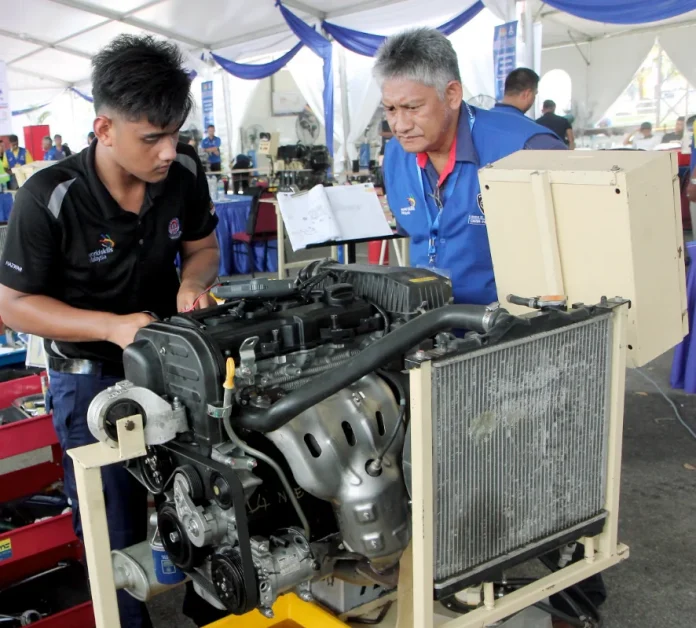PETALING JAYA: The Malaysian Employers Federation (MEF) has given its full backing to the National Skills Development (Amendment) Bill 2025, describing it as a “major leap forward” in modernising Malaysia’s technical and vocational education and training (TVET) ecosystem.
The Bill, tabled for first reading in the Dewan Rakyat on Monday by Human Resources Minister Steven Sim, aims to update the National Skills Development Act 2006 to reflect the demands of today’s workforce.
Key reforms include modular and micro-credential training, enhanced recognition of prior learning, and a restructured Malaysian Skills Certification pathway, all intended to make skill development more flexible, inclusive and industry driven.
MEF president Datuk Dr Syed Hussain Syed Husman said the amendments would finally recognise thousands of skilled and experienced workers who have long been overlooked.
“Many of these workers, such as mechanics, machinists, welders, electricians and technicians, are the backbone of Malaysia’s industries, yet have never had the chance to gain formal certification.
“The amendment would allow their hands-on experience to be formally recognised, opening doors to better career mobility, employability and professional credibility.”
Syed Hussain hailed the introduction of modular and micro-credential training as “timely and progressive”, noting that it allows working adults to upskill without disrupting their jobs.
“This flexible and stackable structure enables workers to upgrade their skills at their own pace without affecting business operations or livelihoods.
“It is a smart way to accelerate Malaysia’s shift towards a higher-skilled, more competitive workforce.”
He also highlighted the restructuring of the Malaysian Skills Certification system, which would permit individuals to attain expert-level recognition and elevate the prestige of TVET qualifications to stand alongside academic pathways.
“This sends a powerful message that TVET is not a fallback but a first-choice career option,” he said.
He praised plans to tighten accreditation and monitoring of training centres, ensuring only credible providers operate under the national framework.
“This step is essential to maintain confidence in Malaysia’s training ecosystem and protect workers and employers from substandard or unrecognised courses,” he said.
Syed Hussain added that the amendments demonstrate the government’s commitment to making skills development more inclusive, accessible and aligned with industry needs.
MEF commended Sim and the Human Resources Ministry for engaging stakeholders and aligning the reforms with national workforce priorities.
“MEF reiterates its commitment to working closely with the ministry, the Skills Development Department and industry partners to ensure the implementation of the amended Act achieves its goals.
“These goals are to empower Malaysian workers, enhance national productivity and sustain economic competitiveness.”
He described the Bill as a “progressive leap forward” for Malaysia’s human capital development agenda.
“It provides real opportunities for Malaysians to be recognised for their expertise, upgrade their skills flexibly and contribute more effectively to national growth.
“Empowering skilled workers through recognition and continuous learning is key to Malaysia’s ambition of becoming a high-income, high-skill nation.”








